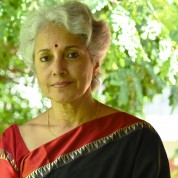PS2.3
How Geopolitics of CDoH Can Influence the Impacts of the ‘New’ Technologies on Health
26
Jan
Commercial Determinants of Health (CDoH) is characterised as “expressions of economic and political power wielded by large corporate entities, described as powerful economic operators’’ (Lacy-Nichols & Robert Marten, 2020). In terms of health technology, their influences can be in advocacy to promote policies that support certain health technologies, research by conducting research and may use this research to inform policy decisions related to healthcare and technology, standards development to ensure an interoperability and then promote the widespread adoption of those health technologies, networking and collaboration to build consensus and promote policy decisions that are supported by a broad range of stakeholders.
There are several influential clubs and organizations in the global health technology space that wield significant power and influence. For examples, (1) The Digital Health Technology Alliance (DHTA), a group of leading technology and healthcare companies that work together to promote the development and adoption of digital health technologies. Members include Apple, Google, and Microsoft. (2) The Global Digital Health Network (GDHN), a membership-based organization that brings together professionals from the digital health and development communities to share knowledge, collaborate, and advance the field of global digital health. Members include representatives from international organizations, governments, non-profits, and the private sector. (3) The Health Information Management Systems Society (HIMSS), a global non-profit organization that promotes the use of information and technology in healthcare for healthcare professionals and organizations. HIMSS also hosts an annual conference, which is one of the largest healthcare technology events in the world to showcase the latest technologies and innovations in the field. (4) The mHealth Alliance, a global non-profit organization that works to advance the use of mobile technology in healthcare to improve quality and reduce healthcare costs via mobile technologies. It partnered with the United Nations Foundation to develop a report on the potential of mobile health technologies to improve healthcare in low- and middle-income countries. (5) The Personal Connected Health Alliance (PCHA), a non-profit organization that promotes the use of personal health technologies to empower individuals to better manage their health and wellness.
After attending this session attendees will:
- Learn how the commercial determinants of health and geopolitical factors can influence the development, adoption, and distribution of new health technologies.
- Understand the challenges and opportunities presented by the nexus of health technologies and geopolitics, and explore strategies to address them.
- Hear about real-world case studies that demonstrate how commercial determinants of health and geopolitical factors can impact health outcomes and how innovative approaches have been used to overcome these challenges.
- Be able to develop actionable strategies to promote innovation, access, and equity in healthcare systems worldwide, based on the insights and knowledge gained from the session, and connect with other delegates and speakers to share ideas and experiences.
PANELISTS
Biosketch
Gabriel Leung
Precious Matsoso
Saudamini Dabak
Soumya Swaminathan
Short Paper
Session Materials
PS 2.3_All Speaker Slide.pdf





